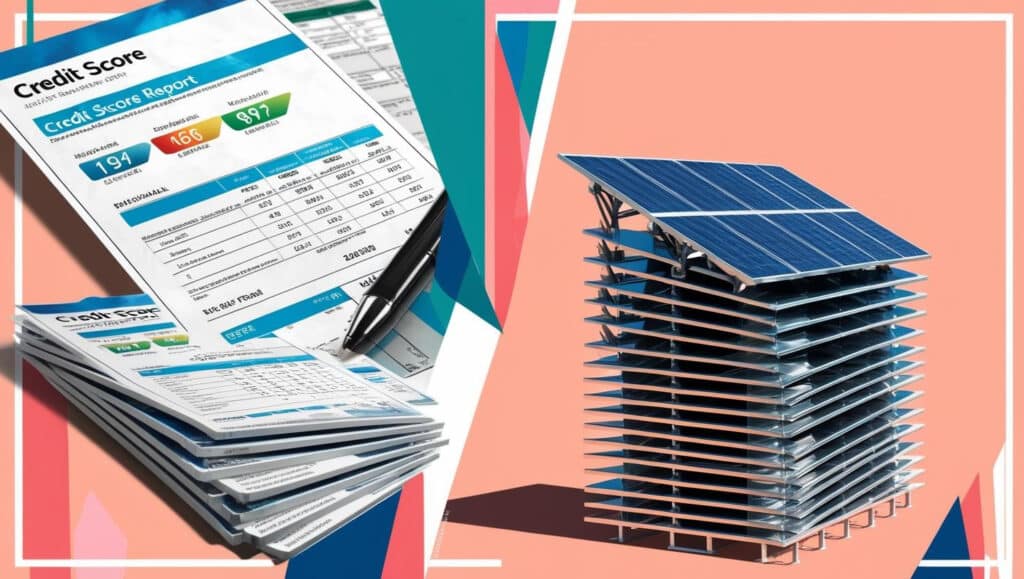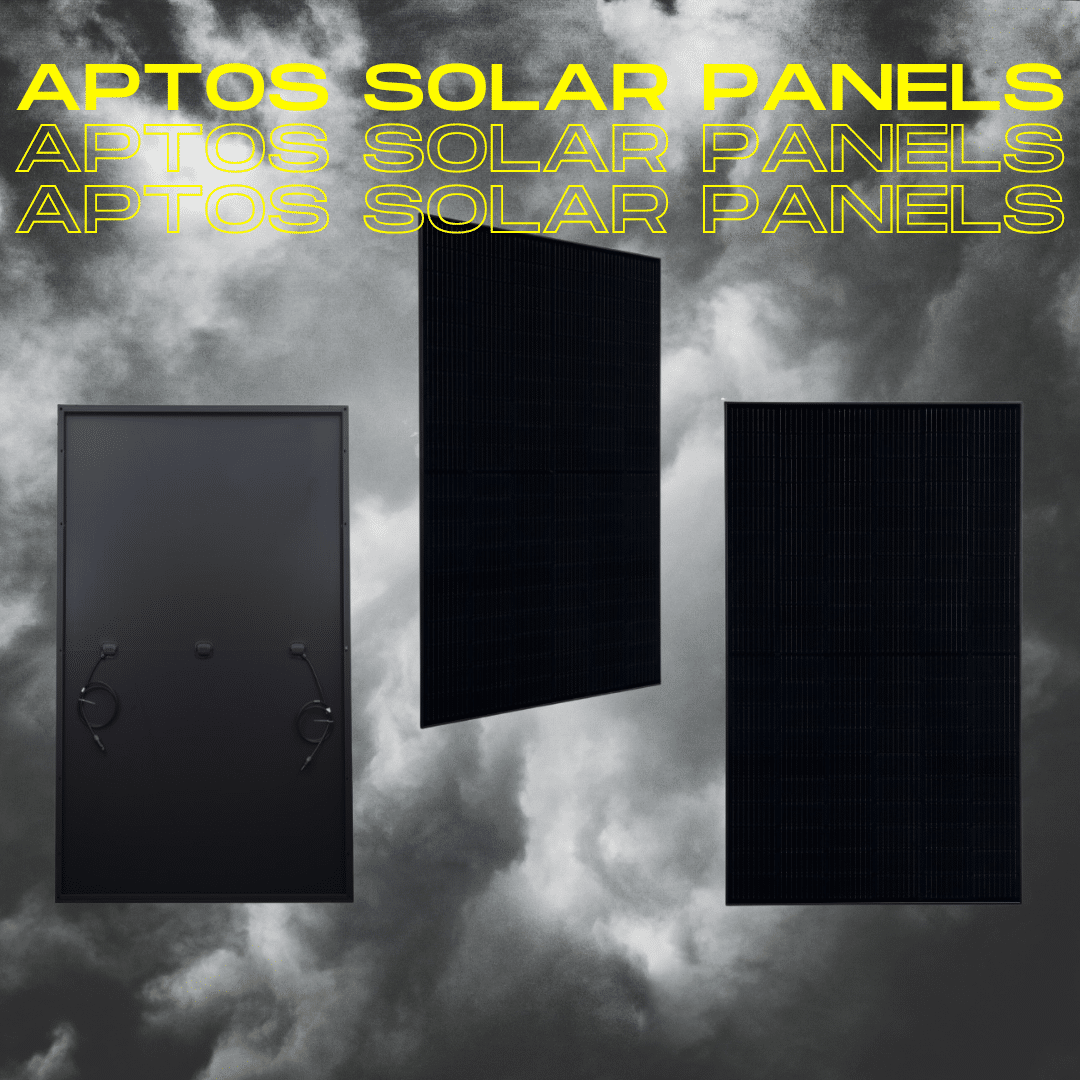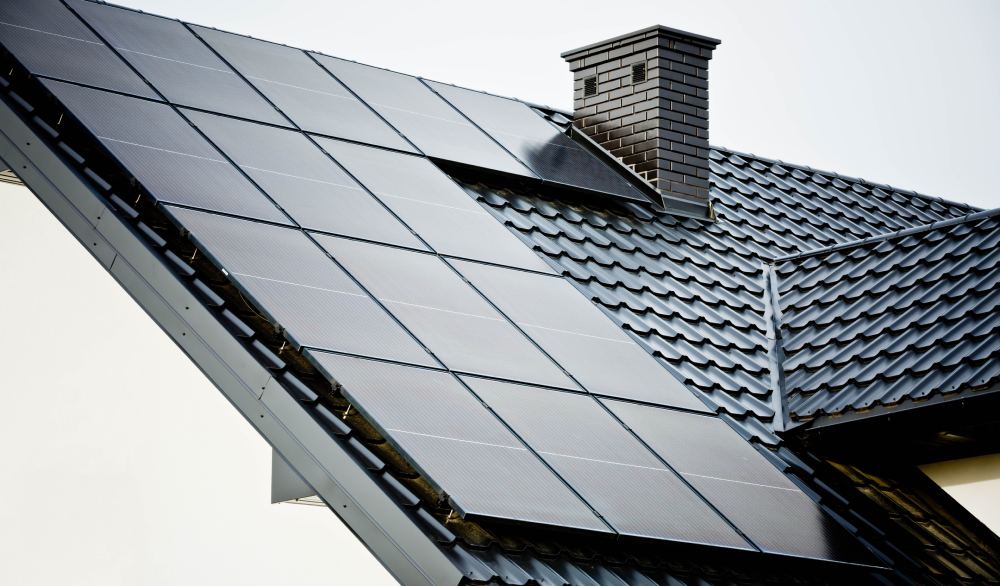Key Takeaways
- Solar financing options, including loans, leases, and cash purchases, allow homeowners to choose a plan that best fits their budget and lifestyle.
- Understanding credit score requirements and state and federal incentives can help maximize savings and ensure a smoother financing process.
- Solar energy systems offer long-term financial and environmental benefits, from increased property value to reduced energy bills.
Good Lord, where do we even start with solar credit requirements? It’s a bit like trying to decode something out of a sci-fi movie, but fear not!
We’re here to help you make sense of it all. More and more homeowners are feeling the cosmic urge to harness the sun’s power—and why not? Solar energy promises savings, sustainability, and a sense of superiority over folks still wrestling with their electricity bills.
In this post, we’ll unravel the mysteries of solar financing options, credit score requirements, and how to prepare for your solar adventure without feeling like you’ve just walked into the set of a space opera. Stick around until the end for a little nudge toward taking the next step into the solar-powered galaxy.
Solar Financing Options

Solar financing is a dynamic field, offering choices that fit various financial situations and preferences. These options range from traditional loans to innovative leasing agreements, allowing homeowners to access solar power without hefty upfront costs. By choosing the right financing path, you can balance your budget with your energy-saving goals.
Here’s a closer look at the options available:
What are Your Solar Financing Options?
Solar financing options are diverse, catering to everyone from the budget-conscious to those ready to invest outright. Each choice has its advantages, enabling you to select a plan that aligns with your financial goals and energy needs.
Here’s a breakdown of the primary solar financing methods:
- Solar Loans – These can be secured or unsecured, depending on your financial report card. Repayment terms are flexible, so you can sip on your morning coffee without worrying too much about your solar tab.
- Solar Leases & PPAs – For those commitment-phobes, leases and PPAs (Power Purchase Agreements) allow you to rent solar panels and pay a fixed monthly fee while someone else handles maintenance.
- Cash Purchases – If you’re someone who prefers full ownership, outright buying your panels can maximize long-term savings and avoid interest payments entirely.
Solar Financing Options for Third-Party Ownership
Third-party ownership offers a way to go solar without taking on the responsibilities of ownership. It’s a flexible approach that makes solar energy accessible to more people by shifting maintenance and installation costs to a third party.
Here’s how it works:
- Solar Leases & PPAs – For those who prefer solar without the upfront costs, leases and PPAs allow a third party to own the panels, while you enjoy the benefits. It’s a great option if you’re looking for simplicity and minimal commitment.
- Responsibility-Free Maintenance – Enjoy hassle-free solar energy as the third party takes care of all cleaning, repairs, and maintenance.
Thinking about third-party ownership? Connect with a local solar expert at Sun Source Energy to discuss hassle-free solar options!
Solar Loans and Credit Score
Solar loans make solar more affordable by spreading out the cost over several years. However, your credit score can impact the loan rates and terms available to you. Understanding how your financial history influences these loans is essential for maximizing your benefits.
What is a Credit Score and How Does It Affect Solar Financing?
Your credit score reflects your financial reliability, impacting the type of solar financing options you can access. A high score can unlock better deals and make solar financing more cost-effective.
Here’s a quick guide on the impact of credit scores:
- Higher Score, Better Deals – With a shining credit score, you’re more likely to get lower rates and better terms.
- Lower Score, Higher Hurdles – A less-than-stellar score might mean higher interest rates or, in some cases, limited financing options.
How to Check Your Credit Score and Report For Free
Checking your credit score regularly helps you stay prepared for any financing needs. Fortunately, there are several free options to keep tabs on your credit:
- Annual Free Reports – Each of the three major credit bureaus offers a free credit report once a year, providing an essential snapshot of your financial health.
- Credit Monitoring Tools – Apps like Credit Karma and Experian provide free tools to help you monitor your credit score.
Ready to start your solar journey? Sun Source Energy is here to guide you through financing options tailored to your credit profile.
Solar Panel Costs and Savings
Investing in solar panels involves initial costs, but the long-term savings and potential property value increase make it a worthwhile decision. Understanding these costs can help you better plan your solar investment.
How Much Do Solar Panels Cost?
The price of solar panels varies based on location, system size, and panel type.
Here’s what you can generally expect:
- Average Expenses – Solar panels can range from $3,500 to $35,000, depending on your setup. Installation often adds $15,000 to $25,000 to this cost.
- Factors Affecting Cost – System size, location, and panel type are key cost determinants.
Types of Solar Panels and Their Costs
Different types of panels cater to various budgets and efficiency needs.
Here’s a brief overview of the options available:
- Monocrystalline Panels – Known for high efficiency but come with a premium price tag.
- Polycrystalline Panels – A mid-range option offering a balance between cost and efficiency.
- Thin-Film Panels – Least efficient but budget-friendly, ideal for those seeking a more economical solution.
Solar Panel Tax Benefits
Tax incentives can significantly reduce the cost of your solar investment, making it more affordable and financially attractive. Federal and state programs offer valuable deductions and credits that ease the burden of installation costs.
State and Federal Solar Incentives
Solar incentives at the federal and state levels can dramatically reduce out-of-pocket expenses.
Here’s an outline of the primary incentives:
- Federal Tax Credit – Homeowners can claim a tax credit of up to 30% on solar installation costs.
- State Incentives – Depending on your state, additional credits or rebates may be available, often covering 10-20% of costs.
The Bottom Line on Solar Financing
Solar financing offers an array of choices, each designed to help you transition to clean energy with ease. Whether through loans, leases, or cash payments, solar financing lets you capture savings while enjoying the benefits of solar power.
By considering factors like credit score, financing options, and tax incentives, you can create a customized path to solar that meets your financial and energy goals. As solar becomes more accessible, there’s never been a better time to consider the switch.
Take the Next Step with Sun Source Energy!
Ready to power your home with clean, sustainable energy? Connect with our experts at Sun Source Energy today for a customized quote and financing guidance tailored to your needs. Let’s make your solar dreams a reality! 🌞






